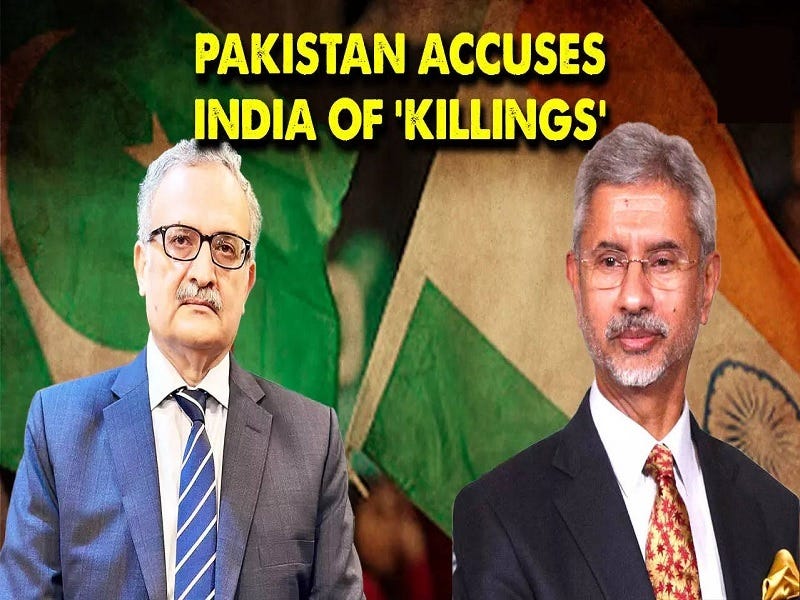The bilateral, regional, and international contexts explain why Pakistan decided to make these allegations public at this time.
Pakistani Foreign Secretary Muhammad Syrus Sajjad Qazi accused India late last week of orchestrating the killing of two Delhi-designated terrorists-separatists on its soil last year, which the latter dismissed as “false and malicious propaganda”. Whatever one may think about the veracity of these claims, they nevertheless shouldn’t be seen in a vacuum since the bilateral, regional, and international contexts explain why Pakistan decided to make these allegations public at this time.
Beginning with the bilateral one, there’s nothing new about Pakistan or India accusing each other of carrying out lethal operations on their territory, but there had recently been a bit of a lull to this trend. During this time, India’s global renown greatly increased following its successful G20 chairmanship, which might have prompted Pakistan to go public with these claims instead of handle them discretely per traditional protocol. Pakistan basically wanted to rain on India’s parade and degrade its reputation.
As for the regional context, “Iran Came Out On Top After Its Tit-For-Tat Strikes With Pakistan” for the reasons explained in the preceding hyperlinked analysis, thus discrediting Pakistan’s powerful military-intelligence services that control the country behind the scenes. Even though “The Iranian Foreign Minister’s Trip To Islamabad Is An Opportunity To Patch Up Their Problems” next week, the aforesaid structures might have wanted to distract their population by playing the so-called “India card” yet again.
And finally, the newfound trouble in Indo-US ties brought about the Justice Department’s charges against an unnamed Indian official who allegedly tried orchestrating the assassination of a Delhi-designated terrorist separatist on US soil last summer provide the most relevant context of all. Readers can learn more about this here, here, and here, but the point is that Pakistan’s latest claims are meant to reaffirm Western perceptions of India as a so-called “rogue state” so as to further worsen their ties.
Putting it all together, Pakistan wants to degrade India’s reputation after its chairmanship of last year’s G20 earned it global renown, distract its own people from the strategic edge that Iran obtained after this month’s tit-for-tat strikes, and accelerate the worsening of Indo-US ties. India is expected to respond to this by continuing to draw attention to Pakistan’s support of Delhi-designated terrorists-separatists in Kashmir, which will likely resonate much more with international audiences than Pakistan’s latest claims.
Those who view everything in a vacuum, however, might be misled into thinking that India is indeed the “rogue state” that Pakistan is portraying it as. That’s why India will probably also remind everyone of the insight that was touched upon in this analysis regarding the three contexts within which the aforesaid allegations were made in order to highlight the political-strategic goals that Islamabad is pursing. Conventional and social media will be the means to this end in the battle for hearts and minds.
In the event that Pakistan escalates its latest claims to the UN level, then India will certainly respond reciprocally with its own related ones in a tit-for-tat fashion, thus internationalizing this development and once again bringing their long-running disputes to wider international attention. Whatever ends up happening, the most important thing is that Pakistan continues abiding by February 2021’s ceasefire and doesn’t exploit this drama as an excuse for violating it, otherwise South Asia risks being destabilized.




